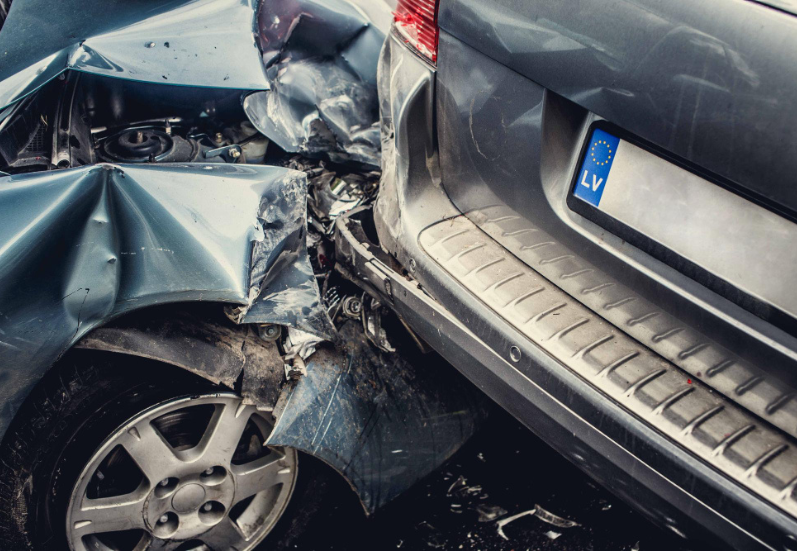
You never expect it, but in the blink of an eye, a car accident can throw your day into chaos.
Between the adrenaline, confusion, and concern for everyone’s safety, it’s easy to say the wrong thing — even with the best intentions.
That’s why knowing what to say (and what to avoid) at the scene of a crash matters more than most people realise.
Whether you’re waiting for help to arrive or exchanging details with the other driver, choosing your words carefully can protect you legally and financially.
So, you need to know what to say and what not to say at the scene of an accident.
If you’re unsure, it’s always wise to consult top Georgia car accident attorneys located in Gainesville, especially if there’s any dispute about who’s at fault.
First Step In An Accident — Remain Calm
Before you say anything, pause. Accidents are stressful — even minor ones — and it’s normal to feel rattled.
But taking just a few seconds to breathe and calm down can help you think clearly and avoid saying something you might regret later.
What Not To Say At The Scene Of An Accident?
Here’s a quick guide to help you handle the moment with confidence:
What Should You Say?
- “Is everyone okay?”
Start by checking on everyone’s well-being — yours, the other driver’s, and any passengers or pedestrians. - “Let’s exchange insurance and contact information.”
Stick to the essentials. Collect details without making assumptions or accusations. - “I’d like to file a police report.”
Even for seemingly minor accidents, having an official record can make a huge difference later on. - “I’d prefer to speak with my insurance company/attorney before answering that.”
If anyone asks detailed or leading questions, it’s okay to delay your response until you’ve had proper advice.
What Should You Not Say?
- “I’m sorry.”
It might feel like the polite thing to say, but it can be interpreted as admitting fault — even if you’re not to blame. - “It was my fault.”
Never admit guilt, even if you think you caused the crash. Leave that to the experts to determine. - “I didn’t see you.”
This can imply negligence or distraction and might be used against you later. - “I’m fine.”
Injuries aren’t always obvious right away. Saying you’re okay at the scene can undermine a claim if symptoms show up later.
What Should You Document At The Accident Scene?
Documenting the accident scene can help you with your insurance claims. During the negotiation, the insurance companies will want to see evidence for your claims.
And that’s when the documents from the accident will help you.
However, you need to know what you should document at an accident scene to support your compensation claims. Some of these include:
1. Photos Of The Accident Scene:
Firstly, you need to document the accident scene. So, take photos and videos from different angles of the accident scene.
This will make up for the evidence to support your compensation claims. Also, it will help your lawyer to investigate your case and claim maximum compensation.
2. Photos Of Your Injuries:
Secondly, you should have proper photographs of the physical injuries you incurred. Even if it is a mild scratch or cut, you should document it.
3. Witness Statements:
Having witness statements can make your claims stronger in court. So, try to collect the statements of the people present at the time of the accident.
Also, collect their contact information for future reference. Your lawyer will go through these statements and use them as evidence to support your case.
4. Official Record Of The Accident:
When there is an accident, the police draft a report of it. This officially states the cause and records the scene of the accident in detail.
So, you need to have a copy of this official record of the accident for your case. This provides the credibility to your claims and provides you with maximum compensation.
5. Contact Information Of The Driver:
Finally, you should keep a record of the contact information of the driver involved in the accident. You will need this information while making your insurance claim.
Moreover, you should collect information about the driver’s name, contact number, car model, license plate number, and their auto insurance number.
Why Should Your Say Matter?
Even casual remarks can be twisted or misunderstood. Insurance companies may review statements for anything that suggests fault.
And in some cases, recorded comments at the scene can affect how claims or legal disputes are resolved.
So, it’s not about being cold or unfriendly — it’s about being careful. You can still show concern without putting yourself at risk.
When Should You Get Legal Help?
If the crash caused serious damage, injury, or confusion about who was at fault, getting advice from a professional can save you a lot of headaches. A legal expert can help you:
- Understand your rights and what to expect
- Avoid common missteps when dealing with insurance companies
- Prepare documentation for any future legal action
Why Should You Hire An Accident Lawyer?
Handling the aftermath of an accident can be difficult. But having an accident lawyer can help you navigate through the legal process without facing any issues.
So, when you encounter a car accident, you can hire an experienced lawyer to handle the legal procedures on your behalf. This way, you can fully focus on recovering.
Moreover, a good attorney can also assist you with the insurance claim process. They evaluate the exact value of your mental and physical losses to draft the compensation claim.
Additionally, they have your best interests in mind. So, they ensure that you get maximum compensation for your injuries.
Also, they negotiate with the insurance companies on your behalf. And, handle the legal complexities with them.
If you are hesitating because of their charges, you should know that they do not charge you unless they win the case. So, you won’t have to pay them without winning the case.
Furthermore, they can guide you with legal advice and suggestions throughout the process of the case. This ensures that you are prepared for the legal procedures in court.
The Right Way To Behave At An Accident Scene
Moments after a crash are chaotic — but they’re also critical. Knowing what to say (and what not to) helps protect you from unnecessary complications.
Stay calm, stay factual, and when in doubt, pause. Your words carry more weight than you might think — so let them work for you, not against you.
Read More:
- How Diagnostic Delays Can Lead to a Legal Claim
- How Can a Lawyer Help with Your Insurance Claim?
- What Happens During a Federal Grand Jury Investigation?











0 Reply
No comments yet.